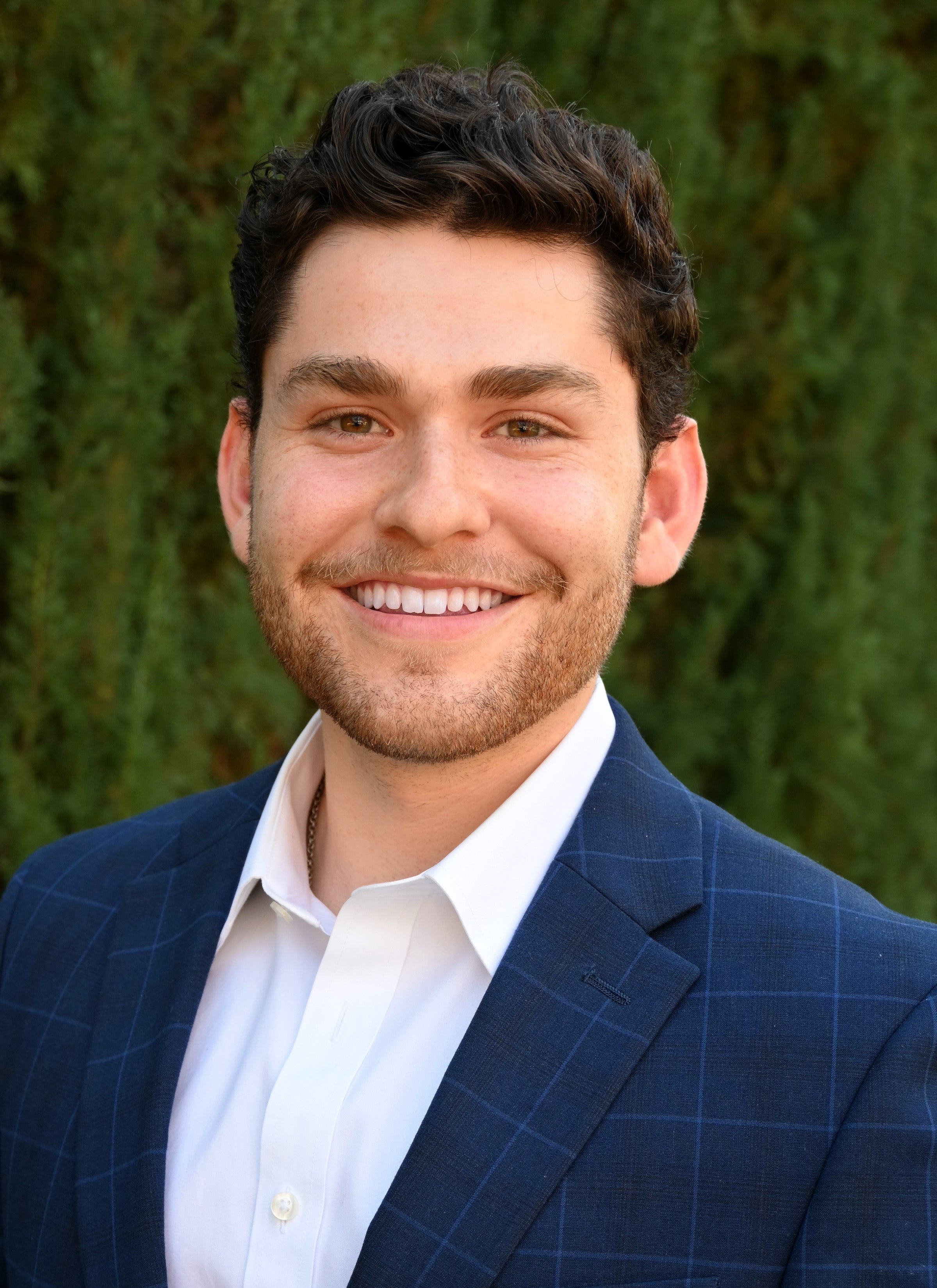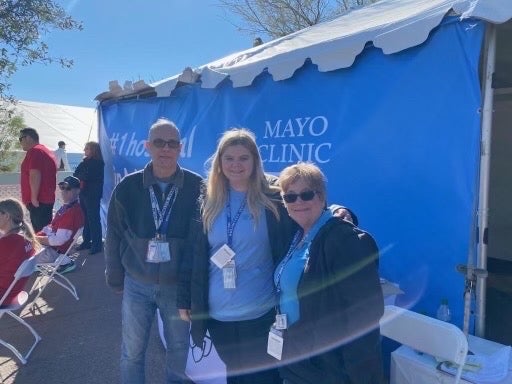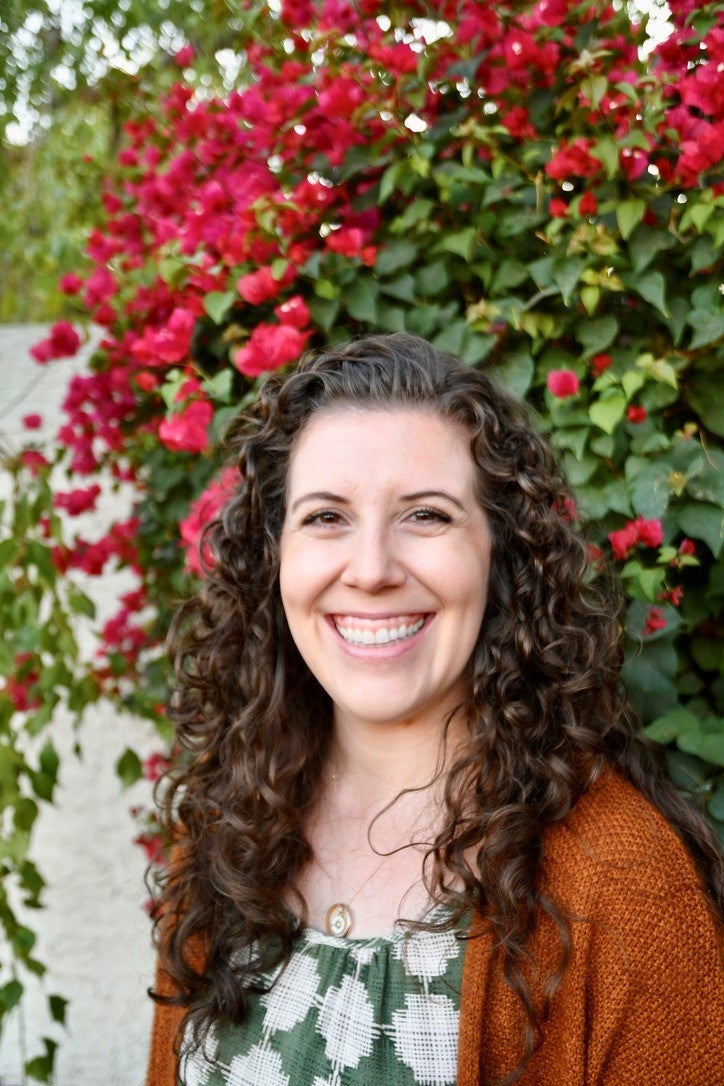
Global Health @ ASU
Improving health and achieving health equity for all people worldwide
What is global health?
Human health is about more than lab tests and medications. The water we drink, the culture we celebrate, and the people we interact with, all play critical roles in health and wellness.
"Global health" puts context front and center by exploring the environmental, cultural and social factors of health while learning to help people in communities across the world.
Why global health at ASU?
The field of global health prioritizes improving health and achieving equity in health for all people worldwide. Our degree programs draw on anthropology and evolutionary medicine to focus on origins of disease and health inequities, using transdisciplinary approaches to craft solutions to disrupt these trends.
This interdisciplinary and international perspective will prepare you for careers in the service of others, from traditional healthcare delivery to international development, as well as gives you the skills and perspectives needed to understand and solve health challenges across the globe, while accounting for cultural, historical, biological and ecological factors.
What can you do with a global health degree?
Our highly-flexible global health degree programs prepare you with the skillset to understand the origins and evolution of disease, and allows you the electives to craft your own learning experience to reach the goals you desire. Our programs cultivate an integrated experience, focusing on the development of cultural competencies through our coursework to help you develop an understanding of the dynamics of local communities, to ensure you are able to have an mindful and ethical impact around the globe.
Global health graduates are epidemiologists, community health managers, international aid workers, doctors, human rights attorneys and professionals in many industries where the cultural competencies and hands-on experience working alongside communities are critical.
Global health as a field has a particular responsibility to be ethical and impactful in the broad sense, as well as a narrow one. Anthropology is central to gaining that wider lens.
Alexandra Brewis, President's Professor
Our global health degrees
The BA in global health is a transdisciplinary degree that provides students with new skill sets and perspectives to help them understand and solve contemporary public health challenges in diverse cultures while accounting for social, historical, biological and ecological considerations, whether in the poorest nations or the most industrialized.
The curriculum focuses on identifying critical issues, asking the right questions and creating meaningful and effective solutions that top health employers demand, and through transformative hands-on experience students gain personal growth, empathy and insight. Students are required to participate in an approved global health study abroad program, and a variety of destinations and focuses are available.
Many faculty in the School of Human Evolution and Social Change hold titles of national distinction and are recognized experts in hot topics such as water security, obesity, resource management, disease, mental health, and stigma, among others.
Course Highlights
- ASB 100- Introduction to Global Health
- Current global health crises, challenges; tools for describing health and disease; ecological, cultural, social, historical, political-economic factors; comparative health systems.
- ASB 300 Food and Culture
- Uses the case of food to explore how culture shapes human well-being, including the impact of political-economic systems on what we have and chose to eat.
- ASB 301 Global History of Health
- Examines disease and health transitions in broadest context of human history, from primate ancestors to hunter-gatherers, to transcontinental contact, colonialism, industrialization, urbanization.
- ASB 305 Poverty and Global Health
- From perspectives of anthropology and allied fields, explores critical, social justice, and ethical issues in health care, research, and disparities. Focuses on vulnerable and special populations.
- ASB 327- Disaster
- Examines the causes of disasters, such as famines and pandemics, throughout human history. Explores cases in which social responses to disaster have helped people survive or led to their demise. Through hands-on activities, students gain experience with popular tools to understand human responses to disasters.
Career Opportunities
Training in global health provides enormous and varied career opportunities, both national and international, and demand is high and growing for graduates with these skills. The major supports the goals of those pursuing careers in health services, academic and applied research, and teaching. Potential employers include:
- departments of health
- government agencies
- international agencies (World Health Organization, Center for Disease Control, Global Health Council, World Bank, Inter-American Development Bank)
- nongovernmental organizations
- private sector
- universities
Study Abroad
Studying abroad allows global health students to deepen their understanding of the impact of culture on public health, expand the lens through which they view people, and gain firsthand experience in their field. Students who study abroad can make an impact on communities across the globe, all while enhancing their resume with communication and cultural competency skills needed for a 21st century career.
The College of Liberal Arts and Sciences recommends the following study abroad programs for students majoring in global health: https://goglobal.asu.edu/students/major/global-health.
Transfer Students
ASU is committed to helping students thrive by offering tools that allow personalization of the transfer path to ASU. Students may use MyPath2ASU™ to outline a list of recommended courses to take prior to transfer.
The BS program in global health, offered by the School of Human Evolution and Social Change, exposes students to a comprehensive understanding of the factors that lead to morbidity around the world, including ecological, political, cultural, institutional, historical, evolutionary, social and technological factors. This program seeks to equip students with the necessary skills to create effective, sustainable and culturally-appropriate approaches to prevent, assess and mitigate disease, as well as to assess critically the work of others in their professional environments. The program helps learners to cultivate professional practice through a focus on application of technical knowledge into professional settings by integrating recognized global health competencies. Available on-campus and online!
This degree program allows students who are currently completing an online or in person BA in global health or the BA/BS in anthropology to begin working on the MS in global health while completing the last year of their undergraduate degree. Students accepted to this program will be able to share 12 credit hours of coursework between their undergraduate and graduate degree, so after they complete their bachelor degree, they will be able to complete the MS within one year!
The master’s in global health will equip you to learn, research and practice ways to improve health and health equity for everyone, everywhere – making a lasting impact on the world. You’ll gain an understanding of approaches to improve health within global and interdisciplinary contexts. This program spans social, biological, and health sciences disciplines including anthropology, evolutionary medicine, health sciences, social justice, human rights, sustainability, and much more.
The MS in Global Health is an interdisciplinary degree program in which we work with students to build a program around each student's individual goals. Students take coursework in the following areas:
- Population health and epidemiology
- Healthcare and clinical management
- Data sciences, analysis and management
- Organizational leadership and program management
- Education
- Communication
- Policy
- Program evaluation
- Nutrition and food systems
- Sustainability
- ...and more!
Who is this program for?
- Students who are pre-med/pre-health who are looking to build cross-cultural competencies and better understand how social determinants of health (e.g., culture, geography, racism, colonialism, socioeconomic status) can determine access to healthcare and the quality of that healthcare.
- Students who are NOT pre-med and want to work in the many other areas of health(e.g., non-profits, health agencies, outreach)
- Students who want the flexibility to pair understanding of health with a specific skills set (e.g., policy, epidemiology, leadership, communication, qualitative or quantitative data analysis, sustainability, clinical management)
- Students exploring holistic approaches to support and improve the health of vulnerable populations
- Students interested in learning research skills (e.g., ethnography, qualitative and quantitative research design and analysis) to elevate cultural norms and human behavior as key factors in health
- Students who seek in-person or virtual internships or study abroad opportunities to address contemporary health challenges across cultural contexts
- Students seeking a gap year before medical school (MS program)
Coursework outline
- Coursework taken for the Undergraduate degree- 108 Credit Hours
- Coursework shared between both the Master and Undergraduate degree - 12 Credit Hours
- Coursework taken for the Master degree- 18 Credit Hours
- Total credit hours to earn both degrees- 138 Credit Hours
Requirements
- Currently completing the BA in Global Health or the BA/BS in Anthropology
- GPA: 3.0 cumulative
- 75+ credit hours completed towards the bachelor's program in order to apply to the 4+1 program.
- At least 90 credit hours completed toward the bachelor’s program in order to start sharing courses.
- Courses to be taken prior to applying: Be on track for bachelor’s course map
- All critical and necessary courses as designated by the Major Map through the term in which the student is submitting application for the 4+1 program (typically, term 6)
- Students will first complete the pre-application with the Graduate Coordinator. If approved they will officially apply to the program.
Students accepted into the MA global health program are tied to ongoing transdisciplinary global health projects that address complicated, multifaceted health challenges that defy easy fixes, such as climate change-related diseases, emerging infectious diseases, and obesity.
By applying a collaborative, problem-solving format, the master's degree program in global health is intended to provide those planning to enter health or related fields (i.e., environmental, social) with the transdisciplinary orientation, team skills and social and cultural acuity that the Pew Health Professions Commission inter alia has identified as critical but lacking in current health workforce training. The program also emphasizes experiential learning as a way to gain mastery and requires participation in a global internship program based in one of the international partnering communities.
The MS program in global health in the School of Human Evolution and Social Change exposes students to a comprehensive understanding of the factors that lead to morbidity around the world, including ecological, political, cultural, institutional, historical, evolutionary, social and technological factors. This program seeks to equip students with the necessary skills to create effective, sustainable and culturally-appropriate approaches to prevent, assess and mitigate disease, as well as to assess critically the work of others in their professional environments.
The program helps learners to cultivate professional practice through focus on application of technical knowledge into professional settings by integrating recognized global health competencies. The master’s in global health equips students with the skills to create effective, sustainable and culturally-appropriate approaches to prevent, assess and mitigate disease. It prepares students to solve community and global health issues, making a lasting impact on the world.
Available in person and through ASU Online.
Topical Areas
The MS in Global Health is an interdisciplinary degree program. We work with each student to build a program around each student's individual goals. Students take coursework in the following areas:
- Population health and epidemiology
- Healthcare and clinical management
- Data management and analysis
- Organizational leadership
- Program management
- Education
- Communication
- Policy
- Evaluation
- Nutrition and food systems
- Sustainability
- ... and much more!
Curriculum
30 credit hours and a portfolio
- Required Core Courses (9 credit hours)
- ASM 503 Evolutionary Medicine and Global Health (3)
- ASB 504 Global Health Policy (3)
- ASB 584 Internship (3)
- Restricted Electives (9)
- ASB 500 Qualitative Research Methods (3)
- ASB 507 Advanced Evolutionary Medicine (3)
- ASB 510 Health: Social and Biocultural Theories (3)
- ASB 526 Survey Topics in Global Nutrition (3)
- ASB 548 Maternal and Child Health (3)
- ASB 455 Practicum for Social Sciences (3)
- ASB 462 Medical Anthropology: Culture and Health (3)
- Substitutions can only be made with other SHESC courses
- Electives (12)
- Students work with their advisors to select applicable coursework to their career goals
The PhD in global health draws on the premise that sustainable and satisfying solutions to the most pressing global health challenges require a sophisticated understanding of how cultural context, social and ecological processes and disease are really related.
The program is designed to train those who anticipate working in transdisciplinary academic settings, medical schools or nonacademic health settings, such as the commercial sector, government agencies or nongovernmental organizations.
The transdisciplinary graduate program trains students broadly in cutting-edge health social science research theory and methods. While it leverages the strength in medical anthropology at ASU, including the 15 medical anthropologists on campus, it also takes advantage of a much wider set of skills offered by experts in such fields as medical sociology, demography, human geography and epidemiology.
The ASU difference:
We are measured not by whom we exclude, but by whom we include and how they succeed
- Excerpt from ASU charter




